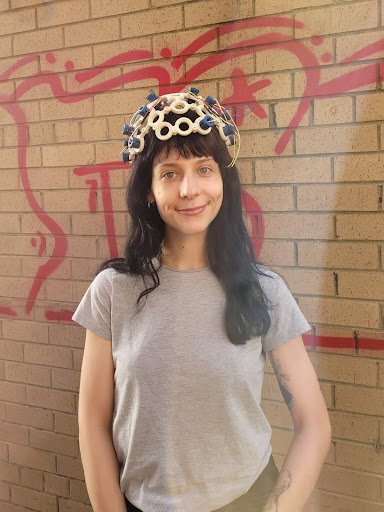Characterising Brain States and their Transitions
-
PhD Candidate

Michaela Vranic-Peters
Project Details
Studying brain states and their transitions is challenging due to the complex nonlinear dynamics of brain activity. So far research has relied heavily on mathematical neural models and simulations, with findings proving difficult to replicate in real human data, due to recording limitations like noise, limited temporal and spatial resolution, lack of long-term recordings, insufficient power and group heterogeneity. Perturbation methods present an excellent paradigm for studying dynamics, though their translation to real data is underexplored. This method involves applying a small, external input to the system, and measuring the sensitivity in system output. Non-invasive perturbations like photic and auditory stimulation can induce measurable changes to brain activity (cortical excitability). In particular, we hypothesise that clinical populations such as epileptic patients that are characterised by pathological network connectivities have an increased sensitivity to perturbation. Therefore, we aim to use functional neuroimaging data such as EEG to study the effect of non-invasive (photic and auditory) stimulation in epileptic patients and controls to evaluate and establish multiple biomarkers of cortical excitability.
Biography
My previous study involved meandering through the different science departments of The University of Melbourne: a BSc. in Cell and Developmental Biology, a Diploma in Mathematical Sciences (Discrete Mathematics & Operations Research), half of a BSc. in Physics before side-stepping to an honours degree equivalent of a Graduate Diploma in Psychology (Advanced) with a focus on statistical analysis. I love to code and also work as an indie game developer. My aim is to employ a multi-disciplinary approach to understand both normal and abnormal brain dynamics and activity.
Researchers
Michaela Vranic-Peters, PhD Candidate
Research Group
Key Contact
For further information about this research, please contact the research group leader.
MDHS Research library
Explore by researcher, school, project or topic.